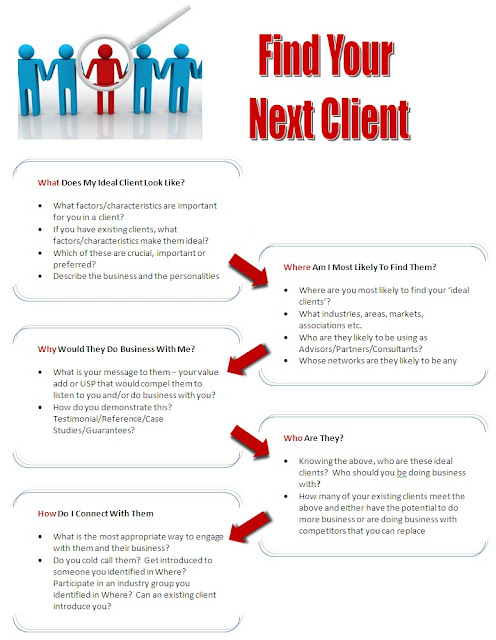When single - one is often in the pursuit of a relationship. It is seldom you strike a situation where you are prepared to ask someone to marry you on the first date. And, if you are one that does, it is even more seldom that this relationship lasts. Sure, you may be lucky - but more often the not you won't be.
You spend some time assessing whether they are right for you.
Sales isn't much different - it is a relationship after all. You court your client in a manner not unlike a personal relationship - not just to see if you could do business with them, but also to see if you should.
It is the should aspect that is important. Often we can pursue a business relationship with someone (or personal) - but this doesn't always mean we should.
The purpose of talking with a client through the 'courtship' process helps you determine how well you fit together:
Should means you have determined that they are an ideal client of yours, you want to work with them and the reciprocal is true for them. This determines a long term, mutually beneficial relationship.
Some times, you could actually sell them something. If your business is transactional, you may get away with this. But if you are in a sales relationship with them over time - you could be buying you and them a problem. Often, we are thrust in to sales relationships with clients by a variety of factors (we inherit them, we grab any client during low periods, they come to us and we are spellbound by the sales opportunity, etc) - whilst this can generate an immediate benefit through a sale - if mismatched, it can derail at a later date and do more damage than the benefit you received.
Yes, sometimes this means you walk away from a sale (or conclude it at a later date), but looking for the right clients is a skill you eventually learn painfully.
Refer: Where is Your Pyrite
To help determine what you ideal client should look like...
You spend some time assessing whether they are right for you.
Sales isn't much different - it is a relationship after all. You court your client in a manner not unlike a personal relationship - not just to see if you could do business with them, but also to see if you should.
It is the should aspect that is important. Often we can pursue a business relationship with someone (or personal) - but this doesn't always mean we should.
The purpose of talking with a client through the 'courtship' process helps you determine how well you fit together:
- Is there mutual trust?
- Are your values aligned and to what degree?
- Are they similarly minded to you?
- Do you compliment one another - is there mutual benefit to the relationship?
- Are you heading in the same direction?
- and a myriad of other factors
Should means you have determined that they are an ideal client of yours, you want to work with them and the reciprocal is true for them. This determines a long term, mutually beneficial relationship.
Some times, you could actually sell them something. If your business is transactional, you may get away with this. But if you are in a sales relationship with them over time - you could be buying you and them a problem. Often, we are thrust in to sales relationships with clients by a variety of factors (we inherit them, we grab any client during low periods, they come to us and we are spellbound by the sales opportunity, etc) - whilst this can generate an immediate benefit through a sale - if mismatched, it can derail at a later date and do more damage than the benefit you received.
Yes, sometimes this means you walk away from a sale (or conclude it at a later date), but looking for the right clients is a skill you eventually learn painfully.
Next time, instead of asking could I do business with them, ask should I do business with them!
Refer: Where is Your Pyrite
To help determine what you ideal client should look like...

